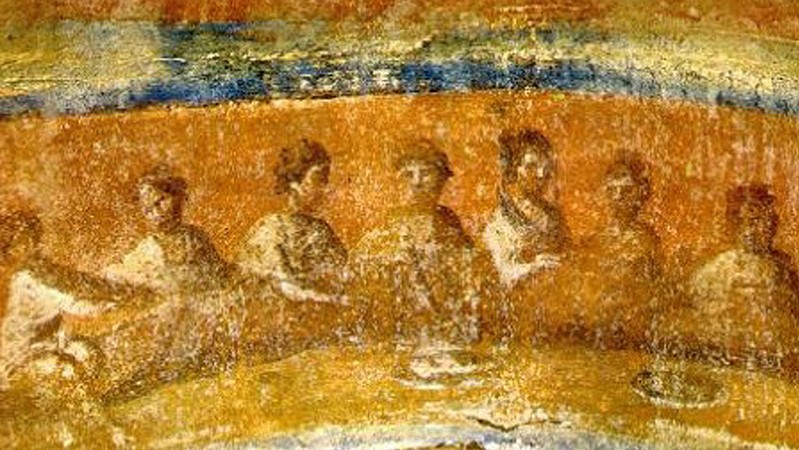A “Lord” = YHVH. From havah (to be, become) or hayah (to come to pass, become, be). This is the name of the God of Israel, the self-existent and eternal one, the tetragrammaton. This pronunciation has been lost to time so “Lord” is generally used in its place.
B “hosts” = tsaba. From tsaba (to wage war, serve, assemble, fight, perform, muster, wait on). This is a large group of persons (used figuratively for a group of things). It implies a campaign literally as with army, war, warfare, battle, company, soldiers. Can also be used figuratively for hardship or for worship.
C “peoples” = am. From amam (to darken, hide, associate; creating shadows by huddling together). This is people or nation. It can be used specifically for a tribe, collectively of troops or armies, or figuratively to refer to a flock of animals.
D “feast” = mishteh. From shathah (to drink literally or figuratively; a drinker). This is drink or the act of drinking. So it is a feast or banquet, as occasions with drinking.
E “rich food” = shemen. From shamen (to shine, which implies being oily, growing fat). This is fat, oil, grease, olive oil – often with perfume. Used figuratively for fertile, lavish, rich.
F “well-aged wines” = shemer. 5x in OT. Perhaps from shamar (to keep, watch, or preserve; to guard something or to protect it as a thorny hedge protects something). This is the dregs or settling of wine, a sprit, or aged wine (perhaps as preserved).
G “filled with marrow” = machah. This is to rub or wipe away, which implies blotting out or erasing, which can be used to mean destroy. This can also be rub in the sense of rubbing oil or grease on something or, more generally, reaching or touching.
H “strained clear” = zaqaq. 7x in OT. This is to refine, purify, or distill. Figuratively, it can mean to extract.

